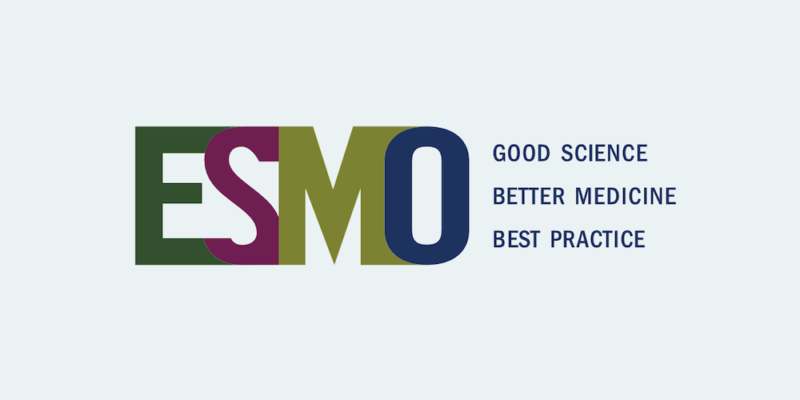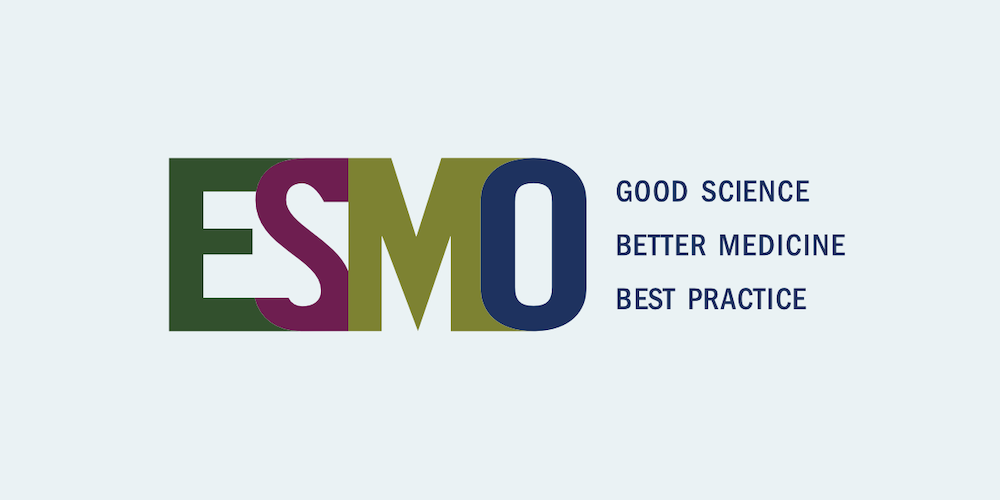The 2021 Congress of the European Society for Medical Oncology (ESMO), held 16‒21 September, featured studies that are likely to impact a broad spectrum of clinical practice. We summarise some of the findings that could change treatments for two of the most common cancer types ‒ breast and prostate.
In prostate cancer, the PEACE-1 and STAMPEDE studies demonstrated that novel combinations of established drugs prolong survival in hormone /castration-sensitive prostate cancer. The studies found addition of abiraterone acetate plus prednisolone to standard therapy proved beneficial in both metastatic and high-risk populations. “The clearly positive results are reassuring and should convince patients and physicians to intensify the treatment of patients with metastatic and high-risk locally advanced hormone/castration-sensitive prostate cancer early on,” said Maria De Santis (Charité Universitätsmedizin, Berlin). The fact that there is no need to wait for approval of new drugs, she added, means the findings can be implemented into daily practice right away.
For decades, androgen deprivation therapy (ADT) has been standard of care for metastatic prostate cancer. However, survival was found to be improved by the addition of docetaxel to ADT in 2015, and abiraterone to ADT in 2017. To achieve the best outcomes, it was unknown whether one or both drugs should be added to ADT.
The PEACE 1 study, Abstract LBA5_PR, focused on 1,173 men with metastatic castration-sensitive prostate cancer. Results showed that when abiraterone was added to ADT and docetaxel, men experienced an additional 25% reduction in risk of death compared to ADT and docetaxel alone. For men with high-burden metastatic prostate cancer, triplet therapy provided 2.5 additional years without cancer progression and approximately 18 additional months of life. “For the first time these men can expect to live more than five years, whereas before 2015 their median survival was less than three years,” said study author Karim Fizazi (University of Paris-Saclay, Villejuif, France).
The STAMPEDE study, Abstract LBA4_PR, focused on 1,974 men with non-metastatic prostate cancer (no spread visible on conventional scans, but at high risk) randomised 1:1 to ADT (control) or ADT + abiraterone acetate and prednisolone (AAP). Results at six years showed addition of AAP therapy improved metastasis-free survival from 69% to 82%, overall survival from 77% to 86% and prostate-cancer-specific survival from 85% to 95% compared to standard care alone.
Study author Gerhardt Attard (University College, London), commented, “Based on these results all men with high-risk non-metastatic prostate cancer should be considered for two years of abiraterone.” Although abiraterone will involve increased hospital visits, he added, by reducing subsequent relapse the approach may reduce overall burden for both patients and the health service.
Again in prostate cancer, the ARCHES study, Abstract LBA25, demonstrated addition of enzalutamide improved overall survival in men with metastatic hormone-sensitive prostate cancer.
Efficacy and safety of enzalutamide, a potent androgen-receptor inhibitor, has already been demonstrated for non-metastatic castration-resistant prostate cancer and metastatic castration-resistant prostate cancer. In ARCHES, 1,150 men with de novo or relapsed metastatic hormone-sensitive prostate cancer were randomised 1:1 to enzalutamide ADT or placebo + ADT. Results at four years showed overall survival was 70.61% for men receiving enzalutamide +ADT versus 57.01% for men receiving placebo +ADT. Subgroup analysis showed overall survival benefit associated with enzalutamide use was maintained regardless of age, ECOG performance status, and baseline prostate-specific antigen levels.
“The results from ARCHES provide valuable data on the clinical profile of enzalutamide in this earlier disease setting,” said study presenter Andrew Armstrong (Duke Cancer Institute, Durham, North Carolina).
In breast cancer it was shown that adding a CDK 4/6 inhibitor to first-line hormonal treatment prolongs survival for postmenopausal women with hormone receptor (HR)-positive HER2 -negative metastatic breast cancer by around one year, as reported in the MONALEESA-2 trial (Abstract LBA17_PR).
Giuseppe Curigliano (European Institute of Oncology, Milan) commented, “The clinical implication is that now we’ve a clear demonstration the combination of endocrine therapy plus the CDK4/6 inhibitor ribociclib prolongs both progression free and overall survival.”
CDK4/6 inhibitors are a new class of breast cancer agents inhibiting cyclin-dependent kinases (CDKs), which are critical regulatory enzymes governing cell cycle transitions and eventual cell division. Palbociclib, ribociclib, and abemaciclib have been approved in combination with an aromatase inhibitor (AI) or fulvestrant for hormone-receptor-positive metastatic breast cancer.
The phase III MONALEESA-2 study randomised 668 patients to ribociclib + the AI letrozole or placebo + letrozole. Results show median overall survival was 63.9 months for ribociclib + letrozole versus 51.4 months for placebo + letrozole (HR=0.76). In 2018 the authors reported in Annals of Oncology that median progression free survival was 25.3 months for ribociclib + letrozole versus 16 months for placebo + letrozole (HR=0.56).
“Given these results, the combination of a CDK4/6 inhibitor plus an AI should be the standard first-line treatment for the majority of patients with advanced HR-positive breast cancer,” said study author Gabriel Hortobagyi (The University of Texas MD Anderson Cancer Center, Houston).
While ribociclib is the only CDK 4/6 inhibitor to demonstrate an overall survival benefit so far in this patient population, he added, results are currently awaited for palbociclib and abemaciclib.
A report from the Gruppo Italiano Mammella trial (abstract 1180) showed that five years of extended treatment with the AI letrozole significantly improved disease-free survival compared with the standard duration of two to three years in postmenopausal patients with breast cancer after two to three years of tamoxifen. The open label phase III study, conducted in 64 Italian hospitals within the Gruppo Italiano Mammella was published simultaneously online in Lancet Oncology.
Between August 2005 and October 2010, after two to three years of tamoxifen, 2,056 patients were randomised 1:1 to receive either five years of letrozole (extended group) or two to three years of letrozole (control group). Results showed that disease free survival rates were 67% for the extended group versus 62% for the control group (HR=0.78, 95%CI 0.65-0.93, P=0.00064). The 12-year overall survival rates were 88% in the extended group versus 84% in the control group (HR=0.77, 95%CI 0.60‒0.98, P=0.036).
Study presenter Lucia Del Mastro (University of Genoa, Italy), said, “This regimen can be considered as one of the optimal standard endocrine treatments for postmenopausal patients with hormone-receptor-positive breast cancer.”
In an accompanying commentary, Rachel Yung and Nancy Davidson (both Fred Hutchinson Cancer Research Center, Seattle) wrote that results from trials evaluating extended AI therapy have been mixed, and the optimal duration of endocrine therapy remains uncertain. They suggest that an area of focus should be to identify biomarkers that could better inform optimal durations of therapy.












